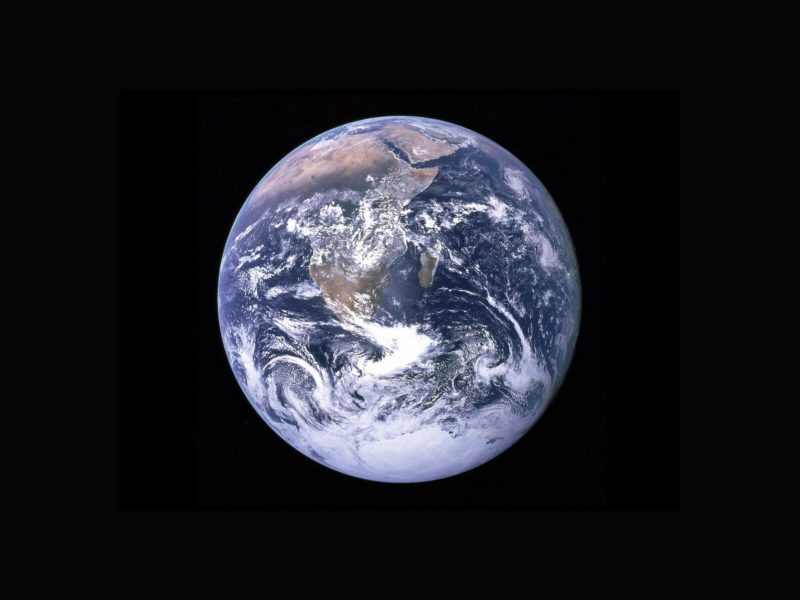On World Health Day, join experts from the Australian Academy of Health and Medical Sciences as they discuss the health impacts of climate change and launch the Academy’s latest statement at our online event Our Planet, Our Health: Climate Change as an Urgent Health Priority.
Climate change represents one of the greatest threats to human health and wellbeing in the 21st century.
Join us on 7 April, as we mark the World Health Day theme of “Our Planet, Our Health” with an online event to launch the Academy’s statement on the health impacts of climate change. You can download the Academy’s full statement here.
Leading experts will discuss how climate change is already affecting the health of Australians, and what the health and medical research sector can do to mitigate current and future threats.
Professor Warwick Anderson FAHA FASSA FAHMS, chair of the AAHMS Climate Change and Health Steering Committee, will guide a conversation with some of Australia’s leading health researchers, including Professor Peter Doherty AC FRS FAA FAHMS, Professor Fiona Stanley AC FASSA FAHMS (Hon), and Professor Ian Anderson AO FASSA FAHMS.
Join us to hear:
• Why climate change is a major and urgent Australian health issue, with implications for health equity
• How health and medical research can advance knowledge, support cross-sector investigations, and help monitor the health impacts of climate change
• Why collaboration with First Nations communities and experts is essential to inform Australia’s path forward
Speakers include:
Professor Warwick Anderson FAHA FASSA FAHMS
Janet Dora Hine Professor of Politics, Governance and Ethics, Charles Perkins Centre, The University of Sydney
Professor Warwick Anderson is a distinguished historian of the biomedical and biological sciences, whose research has transformed our understanding of colonial and tropical medicine and helped to explain the development of global health. The recipient of numerous national international scholarly awards, including the Guggenheim, Burkhardt and ARC Laureate Fellowships, Professor Anderson is co-chair of the AAHMS Climate Change and Health Steering Committee, and chair of this panel.
Professor Peter Doherty AC FRS FAA FAHMS
Patron, The Peter Doherty Institute for Infection and Immunity
Professor Peter Doherty is Australian immunologist and pathologist who, with Rolf Zinkernagel of Switzerland, received the Nobel Prize for Physiology or Medicine in 1996 for their discovery of how the body’s immune system distinguishes virus-infected cells from normal cells. After leading a research group at the Wistar Institute, Philadelphia, and teaching at the University of Pennsylvania, Professor Doherty headed the department of experimental pathology at the John Curtin School of Medical Research in Canberra and served as chair of the department of immunology at St. Jude Children’s Research Hospital in Memphis, Tennessee, where he still holds the Michael F Tamer Chair of Biomedical Research. In 2002, he joined the faculty of medicine at the University of Melbourne, and from 2014, has been at the Peter Doherty Institute for Infection and Immunity, a joint venture between the university and the Royal Melbourne Hospital. Professor Doherty is ambassador of the Climate and Health Alliance.
Professor Fiona Stanley AC FASSA FAHMS (Hon)
Patron, The Telethon Kids Institute
Professor Fiona Stanley is a leading epidemiologist noted for her public health work and research into improving child and maternal health. A former Australian of the Year, she is the founding director and Patron of Telethon Kids Institute, where she is Chief Investigator for a number of research grants. Professor Stanley has been a Distinguished Research Professor at UWA, and the namesake of the Fiona Stanley Hospital in Perth. An Honorary Fellow of the Australian Academy of Health and Medical Sciences, Professor Stanley is passionate advocate for action on climate change in relation to its effect on children’s health and wellbeing. She serves on the Scientific Advisory Council for Doctors for the Environment.
Professor Ian Anderson, AO FASSA FAHMS
Deputy Vice-Chancellor (Student and University Experience), Australian National University
Professor Anderson is Deputy Vice-Chancellor (Student and University Experience) at the ANU. Professor Anderson is a Palawa man from the northwest coast of Tasmania with traditional ties to country known as Tebrakunna. He was appointed Deputy Secretary of Indigenous Affairs in the Department of Prime Minister and Cabinet in 2017, and was Deputy Chief Executive of the National Indigenous Australians Agency. He has spent most of his professional life working in Indigenous health and education. Professor Anderson’s professional background includes over two decades association with the Victorian Aboriginal Health Service as an Aboriginal health worker, doctor, Chief Executive Officer and board member, and a period as Medical Adviser to the Office for Aboriginal and Torres Strait Islander Health in the Commonwealth Department of Health and Aged Care. Professor Anderson has chaired Ministerial Councils such as the National Aboriginal and Torres Strait Islander Health Equality Council and the Aboriginal and Torres Strait Islander Higher Education Council. Prior to joining the public service, Professor Anderson held successive leadership roles at the University of Melbourne including the Foundation Chair, Indigenous Higher Education and as Pro Vice-Chancellor (Engagement).
For more information about World Health Day, visit www.who.int/campaigns/world-health-day/2022
Download the Academy’s statement on climate change and health.


